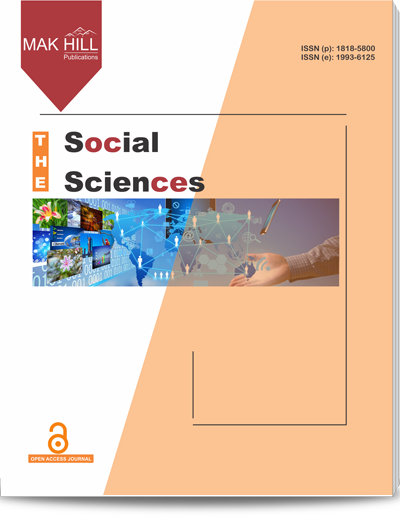
The Social Sciences
ISSN: Online 1993-6125ISSN: Print 1818-5800
Abstract
Investigation of the issue of sense is not possible without referring to the core issues of linguistics including the term ‘subject’ that is the key one directly related to the sphere of anthropocentrism. An important role in this process belongs to the attitudes of subjectivity of opinion, presence of probabilistic provisions that is implemented at the discourse level by means of a wide range of linguistic units and constructs. The objective of the present study is further research into the issue of the linguistic subject with respect to the senses generated in the speech act and a text. Analysis of the anthropocentrism factor is associated with the terms ‘subject’, ‘sense’, ‘self’ and ‘non-self ’, ‘thought’, ‘opinion’, ‘memory’. In order to solve the task set and consequent reasoning of the hypothesis suggested the two methodological approaches were used: linguo-culturological and discursive ones. As the result, it was found out that one of manifestations of the subjective factor in the language is representation in a statement (utterance) of the set of researcher’s personal notions. An important role in this process belongs to attitudes of suggested subjective opinion, presence of probabilistic provisions that is implemented at the discourse level by means of a wide range of linguistic units and constructs. Thus, analysis of the subjective anthropocentric component in a language and text is directly relating to the issues of correlation of the global concepts ‘subject’ and ‘sense’, ‘self’ and ‘non-sel’, ‘sentence’ and ‘utterance (statement’, ‘though’, ‘opinion’.
How to cite this article:
Igor A. Nagornyy, Svetlana A. Kosharnaya, Larisa I. Plotnikova and Svetlana J. Nagornaya. Linguistic Subject and Verbal Meanings of an Utterance.
DOI: https://doi.org/10.36478/sscience.2015.2275.2277
URL: https://www.makhillpublications.co/view-article/1818-5800/sscience.2015.2275.2277